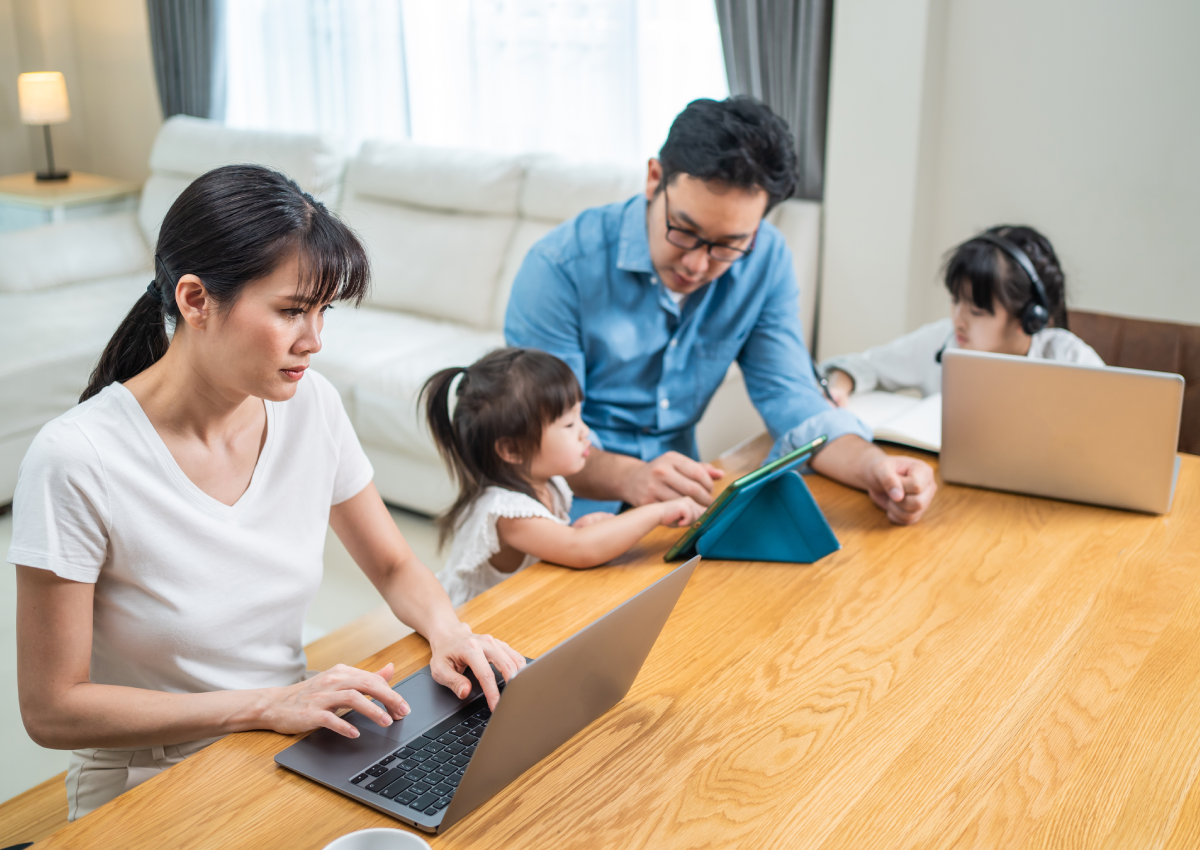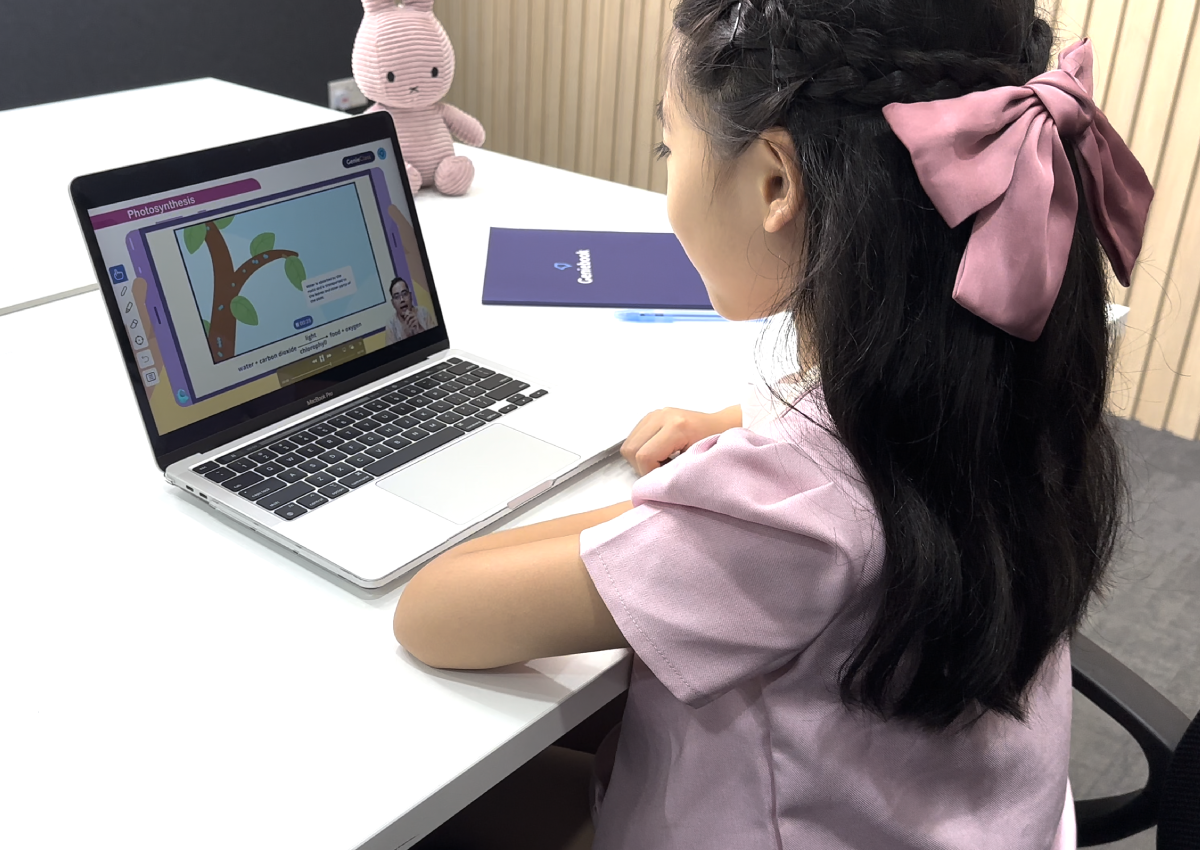Singaporean parents open up about the biggest struggles they face with their children's education



 PUBLISHED ONSeptember 04, 2023 2:00 AMByYuki LingLynette Phua
PUBLISHED ONSeptember 04, 2023 2:00 AMByYuki LingLynette PhuaFrom getting your kids ready for school to checking their homework and preparing their meals, being a parent is no walk in the park. For most parents, all these come on top of juggling a regular nine-to-five job.
The pressures of raising a child in Singapore is especially palpable when it comes to their education.
Beyond the kiasuism that runs in the blood of Singaporeans, the grade-focused academic system combined with a plethora of enrichment programmes and the difficulty in nurturing a self-directed learning mindset in young kids add to this pressure cooker.
For all the overwhelmed parents out there, AsiaOne has spoken to Singaporean parents in your shoes, hearing about their pain points and tried-and-tested methods when it comes to their child's education.
Read on for these parents' tips and tricks, or perhaps for a taste of solidarity, to know that you're not alone in this parenting journey.
Besides the day-to-day stresses of parenting, most in Singapore have to cope with a full-time job – depriving them of precious time with their little ones.
In fact, a 2022 study done by the National University of Singapore found that three-quarters of families surveyed are dual-earner households.
Of the parents we've spoken to, more than half indicated a lack of time to support their children's learning. Rather, these parents often had to intentionally set aside time to guide their kids or send them to enrichment classes.
One parent, Jas, who works in sales and marketing, said she has to carve out time to understand the academic system, plus find ways to engage her kids when it comes to learning.
Another common struggle was the lack of knowledge and skills to support their children's learning, with 55.6 per cent echoing this.
To circumvent this lack of time and knowledge, most parents fall back on enrolling their children in enrichment lessons.

Due to time constraints, sales director Adrian regularly sends his six-year-old son for arts-and-crafts and science enrichment programmes.
Adrian said: "Sending him for such classes from a young age will also expose him to different social settings and help him learn how to interact with others."
Besides the typical enrichment lessons, a handful shared how they are experimenting with modern innovations such as artificial intelligence (AI) and personalised learning tools.
One such example is Geniebook, a suite of online learning products that leverages the power of AI.
Geniebook's products include GenieSmart, an AI-assisted worksheet generator that recommends questions based on academic strengths and gaps; GenieClass, live and pre-recorded online classes led by experienced educators that can be accessed anytime and anywhere; and GenieAsk, real-time chats with teachers where students can clarify doubts or seek help on their homework.

Jas, whose two children aged nine and 12 are users of Geniebook, said Geniebook is a fantastic tool that has saved time for her and her little ones.
"My children are able to log in independently to attend classes and attempt quizzes. Plus, the online classes are surprisingly engaging," she said, adding that Geniebook offers immediate reports that show how her kids fare.
Another parent, Laura, found herself worried about the jump in depth and number of topics when her daughter was about to start Primary Five. This led her to try out Geniebook's learning tools – which she commended for its effectiveness, good value for money and time saved.
Laura explained how the AI system sifts out concepts that a student is weaker at and generates a revision paper of the corresponding difficulty. If the student still struggles, the next set of revision papers will be pegged to a lower level of difficulty, she added.
"I don't need to crack my head over how to explain the answers, mark the questions or worry if [the content] I'm teaching is up-to-date," she said.
When it comes to their child's learning, another common pain point faced by parents is keeping them interested and focused.
A large majority of respondents – 70.4 per cent – cited their child's disinterest in certain subjects as a struggle, while 63 per cent brought up their inability to focus when learning.
Creative director Caleb rewards his six-year-old son with gifts, such as toy cars and screen time, as a way to encourage him to learn. He said this method has been effective in motivating his son to stay focused and complete tasks.
Similarly, a mom of two, Rachel, shared how she tries to play educational games with her kids.
But she found these efforts to often be futile, with them easily distracted by their phones or preferring a more physical activity.

As such, most parents agreed on the importance of ways to keep their children motivated. In this aspect, Jasline said Geniebook was a "game changer" for her two daughters aged nine and 11.
Geniebook's rewards programme allows them to earn 'Bubbles' and achievement badges when students complete worksheets, participate in online classes and more. These rewards can then be exchanged for gifts among more than 5,000 kid-safe items available on the Bubble Store.
While Jasline's daughters used to be reluctant to attempt the Mathematics assessment books she bought for them, she now faces less resistance from them when it comes to Geniebook's programme.
"They look forward to earning Bubbles and compete healthily to see who has more Bubbles," she added.
Although the parent of two teenagers, Heng Leng, has exposed her kids to similar novel learning tools, she believes they work best for children who are self-starters.
"Most children don't fall into this category, so parents should still sit beside them and remind them to do their work, until a momentum is achieved," suggested the administrative staff.

Despite efforts to communicate with school teachers and tutors, 40.7 per cent of parents still find it a challenge to monitor their kids' learning progress.
Freelance writer and translator Julie shared how she tracks her two children's learning progress by working closely with their school teachers and keeping a close eye on their homework. But she admits it still requires a lot of supervision on her part.
Learning tools like Geniebook, which help generate personalised reports on students' strengths and learning gaps, come in handy for this aspect, added Julie.
Similarly, accounts executive Jessy, agreed that it is easy to monitor her 13-year-old son's learning progress through such online enrichment programmes.
As echoed by our readers, grappling with your child's education is part and parcel of being a parent.
Working closely with one's school teachers and tutors, setting aside time to sit down with your child, as well as experimenting with unique teaching tools are some tried-and-tested methods that have helped alleviate some common struggles.
Some parents have also found AI-powered learning platforms such as Geniebook to be a game changer when it comes to personalised learning, allowing children to take responsibility for their own learning, and grow into confident and well-rounded individuals.

For parents who are keen on exploring a new way of learning with Geniebook, find out more about their exciting suite of online learning products here.
Give a breath of fresh air to learning, and it could do wonders for you and your child!
This article is brought to you in partnership with Geniebook.
No part of this story or photos can be reproduced without permission from AsiaOne.
For more original AsiaOne articles, visit here.